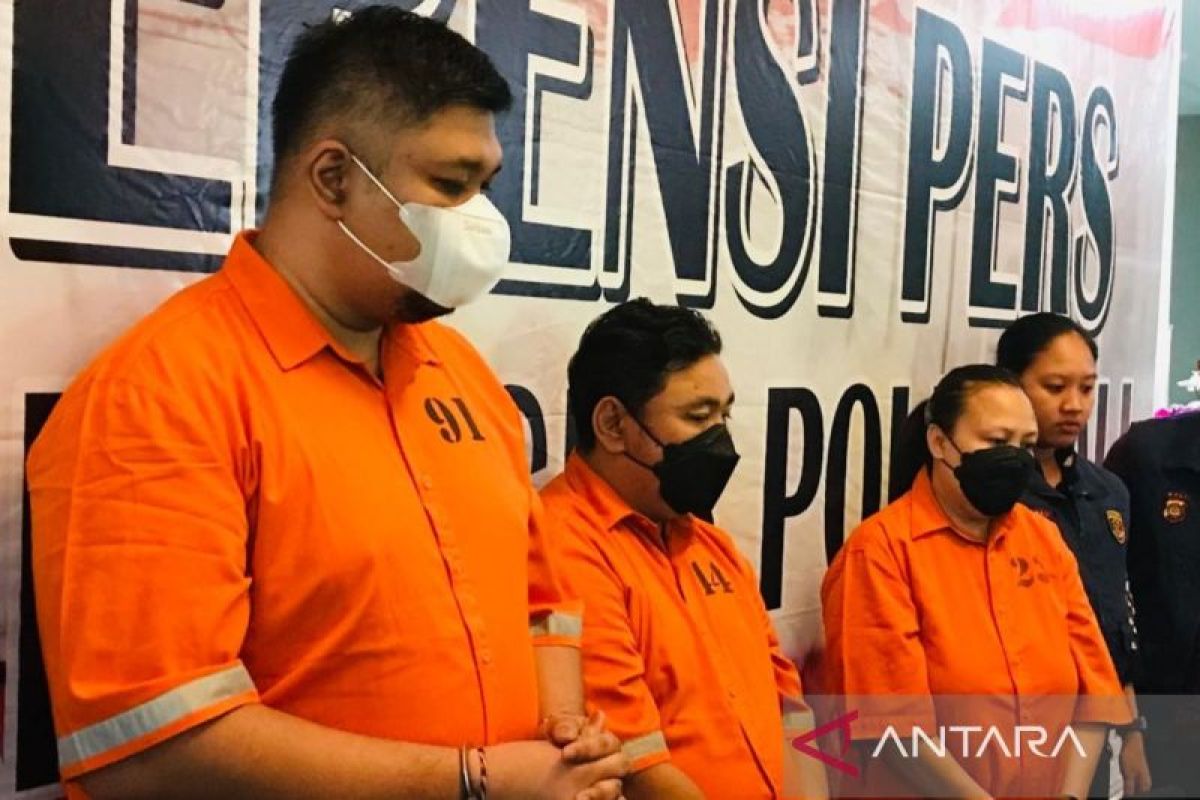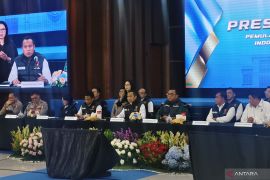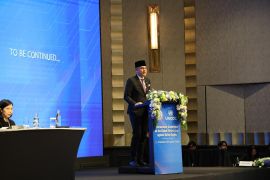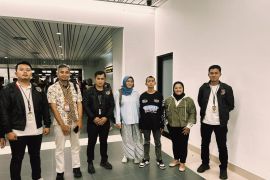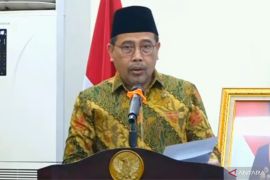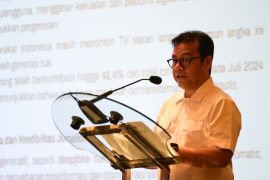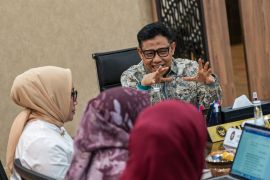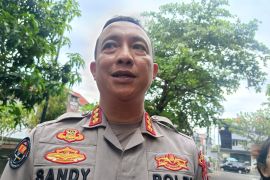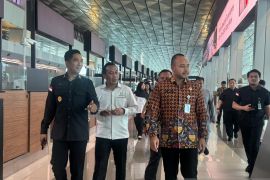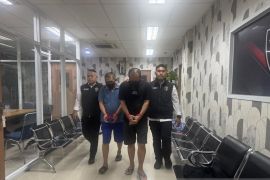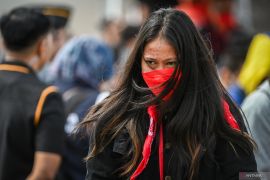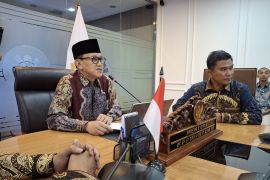As a result of developments in the case, the police were able to name 15 suspects, with four of them having worked at the Immigration office in Bali, while the other one was a member of the National Police.
In that human trafficking case, the police revealed that the kidney trade syndicate came from the Cambodian network that has claimed 122 victims.
Of the 15 people, the role of each suspect was revealed, namely 10 people were part of a syndicate and one member was a policeman. Meanwhile, four immigration officers helped the suspects to evade being tracked by authorities at several airport exit gates in exchange for a sum of money.
The arrest of this network adds to another human trafficking case revealed by the law enforcement apparatus.
Related news: Kidney trade: Police seeks Interpol red notice against suspect
Related news: MPR calls for best treatment for victims of illegal kidney trading
Since President Joko Widodo appointed Indonesian National Police Chief General Listyo Sigit Prabowo as Chairperson of the Human Trafficking Practice (TPPO) Task Force on June 5, a total of 2,195 victims had been rescued as of July 27.
This figure comes from 722 police reports across Indonesia, with 834 perpetrators arrested. This number has increased, in line with the disclosure of human trafficking cases in several areas and the development of previous cases.
Meanwhile, the Ministry of Women's Empowerment and Child Protection in its Online Information System for the Protection of Women and Children recorded that 1,581 people in Indonesia became victims of human trafficking in the 2020-2022 period.
The ministry’s Deputy for the Protection of Women's Rights stated that most of the victims were women and children.
New crime practice
Based on Law Number 21 of 2007, human trafficking includes acts of recruiting, transporting, sending, or transferring a person by force, kidnapping, confinement, forgery, fraud, abuse of power, debt bondage, and others, so that the perpetrators can deprive the victims of their freedom and then exploit them.
The forms of exploitation in human trafficking cases range from forced sexual intercourse, slavery or forced labor, trading of organs, or utilizing the victims’ abilities without their consent.
According to data from the police, the types of crimes related to human trafficking are quite varied and camouflaged, such as online scams or online fraud, gambling, prostitution, and smuggling of ship crew and domestic workers.
Regarding online fraud, the Foreign Affairs Ministry classifies human trafficking in the field of online fraud as a regional problem.
In the last three years, the Ministry of Foreign Affairs has handled and resolved 1,841 cases of online fraud, wherein the victims were Indonesian citizens, spread across Myanmar, Cambodia, Thailand, Vietnam, Laos, and the Philippines.
Based on the National Police’s mapping data, the human trafficking practices often offer victims to work abroad without legal procedure and the involvement of official migrant worker placement companies, sending victims with visit visas and providing round-trip tickets, and smuggling victims to other countries rather than the original destination country.
In addition, most victims of human trafficking are bound by work contracts that forced them to work in a place guarded by armed security. The victims were also forced to work 16-18 hours every day without ideal wages, while the perpetrators do not hesitate to commit physical violence against the victim if the work is not in accordance with the order.
Apart from vulnerable groups, such as women and children, as well as people with low education, human trafficking perpetrators were also targeting people at higher education levels through student internship programs abroad.
In the ASEAN region, the Global Report on Human Trafficking in 2022 launched by the United Nations Office on Drugs and Crime (UNODC) stated that the ratio of the number of human trafficking victims in the East Asia region, including Indonesia, had reached 0.34 victims per 100 thousand population in 2020.
The UNODC data refers to the number of victims officially detected and recorded by the authorities, so the actual figure could, in fact, be higher.
According to UNODC, the East Asian countries included Indonesia, Brunei Darussalam, Cambodia, Malaysia, Myanmar, Singapore, the Philippines, Thailand, Mongolia, Japan, and China. Meanwhile, the Pacific countries, include Fiji, Palau, Tonga, Vanuatu, Solomon Islands, Micronesia, Australia, and New Zealand.
The report showed that most of the human trafficking victims in the East Asia and Pacific region, reaching 54 percent, are exploited for forced labor, while 38 percent were sexually exploited, including the practice of prostitution, and the other eight percent were exploited in other forms, with victims ranging from children to adults.
Strengthening cooperation
The disclosure of a National Police member and four Bali Immigration officers in an international crime syndicate sets a bad example for law enforcement efforts in preventing this increasingly massive and systematic transnational crime.
However, the disclosure of their involvement in this crime signals optimism for better efforts in handling the practice of human trafficking.
It has become increasingly important and urgent to handle human trafficking, considering that annually, cases are reported from abroad of Indonesian migrant workers having died.
The police’s efforts in investigating and processing officers involved in this case are a form of prevention against the occurrence of other cases in future.
At the same time, this step is expected to improve the image of the Police in the eyes of the public and shows that Indonesia highly upholds human rights.
Indonesia, as a sovereign country, has not only ratified various human rights conventions as part of the United Nations member but is also responsible for guaranteeing civilized humanity and the safety of its citizens from international networked mafias to avoid exploitation.
Indonesia has regulated a law to handle human trafficking practice through Law Number 21 of 2007 concerning the Eradication of Human Trafficking.
Moreover, at the 42nd ASEAN Summit in May 2023 that was held in Labuan Bajo, East Nusa Tenggara, Indonesia signed a declaration to eradicate human trafficking at the regional level.
At the ASEAN forum, Indonesia, as the 2023 ASEAN chair, invited ASEAN member countries to jointly declare the Eradication of Human Trafficking as a result of the Misuse of Technology (Declaration on Combating Human Trafficking Caused by Abuse of Technology).
In the document, 15 important points will be carried out by countries in ASEAN to combat human trafficking, both in terms of prevention as a joint movement and in handling victims.
ASEAN countries agreed to work together in increasing the capacity of law enforcement, sharing good practices, and conducting joint investigations on transnational human trafficking.
The declaration also pays special attention to victims of human trafficking by pushing for minimum standards of protection at the regional level for the victim and exploring the development of a regional referral mechanism through the ASEAN mechanism to avoid repeated trauma and continued exploitation of victims.
The declaration highlighting the eradication of human trafficking, which emphasizes aspects of technology abuse, provides a warning to the ASEAN community regarding the use of information technology for criminal purposes.
The commemoration of World Day Against Trafficking in Persons on July 30 is expected to be a momentum to gather cooperation across ASEAN countries in eradicating human trafficking. This cooperation is expected to be applied across all levels of society, including the grassroots community that is vulnerable to being manipulated by this criminal practice.
Human exploitation, in the form of human trafficking, is a transnational crime against humanity that must be stopped since this crime has a structured, systematic, yet disconnected network similar to narcotics crime. Thus, it requires joint commitment and work across sectors to eliminate it.
The formation of the Human Trafficking Task Force, which is spread throughout the country, is expected to work optimally to save victims and expose human trafficking networks.
Related news: World Day Against Trafficking in Persons moment for awareness-raising
Related news: Indonesian embassy picks up 26 suspected job scam victims in Myanmar
Translator: Rolandus Nampu, Resinta S
Editor: Sri Haryati
Copyright © ANTARA 2023
